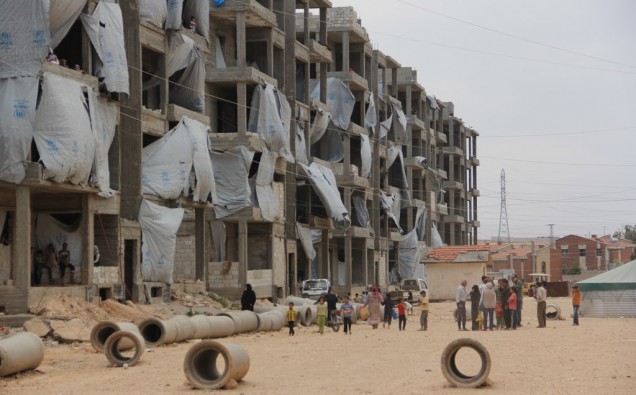
The United Nations humanitarian chief has appealed to the United States and Russia to rapidly reach agreement on the security guarantees and operational modalities for a ceasefire in the war-torn Syrian city of Aleppo so aid workers can deliver life-saving assistance to those in desperate need.
“I’m not going to pretend – I’m angry, very angry” about what is happening in Aleppo today and throughout Syria over the last five years,” Stephen O’Brien, Under-Secretary-General for Humanitarian Affairs and Emergency Relief Coordinator in his briefing to the Security Council on Monday.
He particularly called for a 48-hour pause in the fighting.
“This callous carnage that is Syria has long since moved from the cynical, to the sinful,” he said, warning that it is the failure of politics and the 15-member Council.
“So please: now is the moment, this instant, to put differences aside, come together as one, and stop this humanitarian shame upon us all, once and for all,” he told Council members, as multiple armed proxies continued their killing campaigns.
Aleppo has become the “apex of horror” at its most horrific extent of the suffering of people, with up to 275,000 people in eastern Aleppo almost entirely cut off from vital supplies, while access also remains extremely difficult to the estimated 1.5 million people in western parts of the city,O’Brien said.
“This is a race against time, as fighting rages on,” he said, warning that Aleppo risks seeing a humanitarian catastrophe unparalleled in the over five years of bloodshed and carnage in the Syrian conflict.
On Russia’s call for a 48-hour ceasefire, O’Brien said he and his office are working with all sides to seek to ensure that should the announcement by Russia translates into a comprehensive pause, that will enable aid to safely make its way to those who so desperately need it.
Washington and Moscow are the co-chairs of the taskforces for humanitarian aid and a cessation of hostilities – created by the International Syria Support Group (ISSG), which comprises the UN, the Arab League, the European Union and 16 other countries – and which have been meeting separately since early this year on a way forward on the Syrian crisis.
A humanitarian pause is “not a negotiating tactic” but needed to put confidence into the hundreds of truck drivers to jump back in their cabs, load their trucks, and set off on the slow journey over shell-cratered roads, all the time wondering whether the sniper will take the shot, or an IED (improvised explosive device) will catapult them into the air.
“As we sit here round this safe table, humanitarian rescue workers are risking their lives in search for those buried under the debris,” he told Council members, noting that more than 130 ‘white helmets’ volunteers have lost their lives since 2013, mostly caught in the so-called “double tap attacks,” in which a helicopter or a jet bombs a building, then waits some time – just enough for rescue and medical workers to arrive – before attacking again.
He said that the UN and partners are ready to move assistance within 48 to 72 hours once the green light is given. “Plans are in place, but we need the agreement of all parties to let us do our job,” he said.
Outlining the plan, he said that 50 trucks of assistance are ready to move from western Aleppo into the east and preparation is under way for the cross-border movement of assistance into eastern Aleppo. An initial movement would send 20 trucks with much needed food into eastern Aleppo during the first pause. This would then be scaled up as appropriate for future pauses, and include additional humanitarian assistance based on assessed need.
According to the plan, the loading of items would be monitored by the UN Monitoring Mission, which would then seal the trucks so that any tampering would be evident on arrival, he said.
All trucks would include UN identifying markers. Once cleared, the trucks travel across the border into Syria along the same routes as used prior to 7 July. They travel along the Castello Road and into eastern Aleppo city directly to the warehouses of our partners. Once at the warehouses, trucks will be confirmed as not having been tampered with, and then the seals would be broken and assistance off-loaded, he said.
He began his briefing by saluting the life of Khaled Omar Harrah, a member of the White Helmets, killed on 11 August, by airstrikes. He is remembered for brushing aside debris and reaching through a hole in the wall to pull out a 10-day-old baby from the rubble of a collapsed building in 2014.
Citing the haunting images of five-year-old Omran Daqneesh, a silent face covered in blood and dust, after being pulled from the rubble caused by a recent airstrike, O’Brien told Council members that “imagine this was your child, a child that has known nothing but horrific war.”
“All we need is for the guns to fall silent,” he said, not the politicking and posturing, or the power games and defensiveness.













